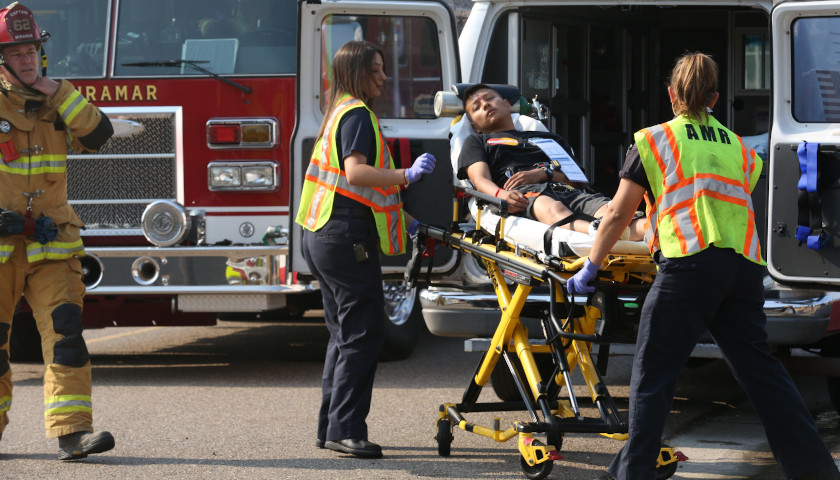Cheatham County is the first Emergency Medical Service provider in Tennessee to provide its staff with body cameras, but there are privacy concerns as members of the public could potentially view what these cameras record.
This, according to CheathamCountyExchange.com, which reported these videos can remain confidential as long as the footage shows only a patient.
“However, if there is video not showing a patient — for example, showing a conflict between medics and family members of an out-of-view patient — there are legal questions as to whether the public has a right to see it. The 30-plus medics in the Emergency Medical Service began wearing the cameras earlier this year. The policy began under an initiative by Mayor Kerry McCarver and also includes dashboard cameras in the agency’s eight ambulances,” according to the website.
“The purpose of capturing video is to provide a means of settling any disputes between medics and patients. EMS leaders say they’ve gone to great lengths to ensure the department doesn’t violate patients’ rights under the 1996 federal law on medical privacy, the Health Insurance Portability and Accountability Act, or HIPAA. All video files are password-protected and only EMS leaders know the password. Body-cam video is downloaded to an external hard drive that is kept in a locked cabinet. Dash-cam video gets erased automatically unless EMS leaders are made aware of a reason to preserve it, in which case the video also gets put on the external drive.”
CheathamCountyExchange.com also quoted Deborah Fisher, executive director of the Tennessee Coalition for Open Government. Fisher said an “EMS video not showing a patient should be considered a public record.”
According to the Nashville-based WKRN, Cheatham County’s EMS is the first in the state “to equip its personnel with body cameras.”
As The Tennessee Star reported last month, law enforcement officers also wear body cams.
Nonetheless, as it pertains to Metro Nashville, officials there ought to watch themselves to make sure they don’t go overboard paying for this technology.
This, according to a new report two consultants prepared for Davidson County District Attorney General Glenn Funk.
The report said Nashville police officers plan to deploy more than 3,000 mobile video cameras, both dash-mounted and body worn. The potential video generated by these cameras could exceed 12,000 hours each day. The two consultants guess that between 10 and 20 percent of this video imagery is evidentiary, leading to an estimate of between 1,200 and 2,400 hours of potential video to examine each day.
As The Star reported in October, Nashville’s criminal justice system needs close to $30 million to process and, if needed, redact videos that law enforcement officers record.
In 2018, Nashville had 8,297 felony arrests, about 20,000 misdemeanors, and about 26,000 citations. The city would need 248 new people to handle the extra workload.
– – –
Chris Butler is an investigative journalist at The Tennessee Star. Follow Chris on Facebook. Email tips to [email protected].






This body cam frenzy is downright stupid…. and outlandishly expensive.